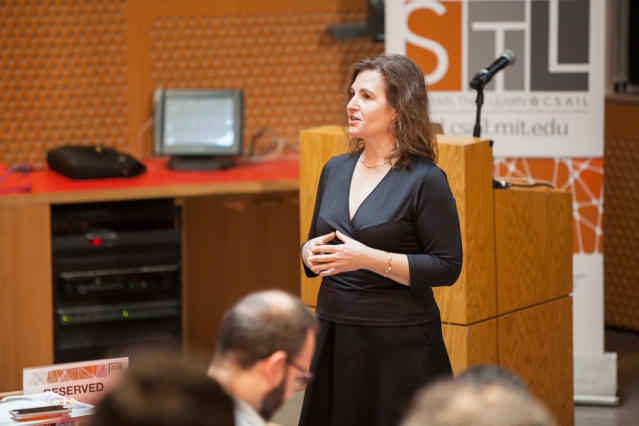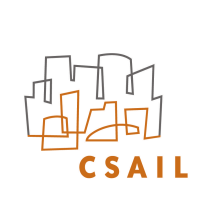
Robohub.org
CSAIL launches artificial intelligence initiative with industry

MIT Professor Daniela Rus, director of CSAIL, said the goal of a new SystemsThatLearn@CSAIL initiative is “to create a new generation of AI tools that are deeply rooted in systems.” Photo: Jason Dorfman/MIT CSAIL
From self-driving cars to the internet of things, artificial intelligence (AI) has reached new levels of sophistication in recent years. With that in mind, this week MIT’s Computer Science and Artificial Intelligence Laboratory (CSAIL) launched an industry collaboration focused on using machine learning to create functional human-like systems.
Nearly 40 senior researchers will participate in the new “SystemsThatLearn@CSAIL” (STL) initiative alongside a range of organizations that include founding members BT, Microsoft, Nokia Bell Labs, Salesforce, and Schlumberger. Member companies will work with CSAIL scientists to suggest new lines of research and develop real-world applications.
“Developing capabilities in AI and machine learning are key to the future of fields like finance, energy, manufacturing, and health care,” says STL Executive Director Lori Glover. “While the demand for expertise is great, the supply of talent remains small and unevenly distributed. By democratizing the field of AI, SystemsThatLearn@CSAIL is an effort to address that skills gap.”
STL builds on CSAIL’s Big Data Initiative, which developed tools for handling complex datasets. While many machine-learning solutions are trained and deployed in separate phases, STL aims to integrate these processes, focusing on a range of resources to handle distributed data and computing power.
Another goal is to make key aspects of data science less laborious. A 2016 report found that data scientists spend 80 percent of their time collecting and organizing data, and only 20 percent analyzing it.
“By promoting industry interaction with academia, we’re hoping to create new tools and systems that can increase productivity by automating much of the tedious work of data science,” says MIT Professor Samuel Madden, one of STL’s two faculty leads alongside Professor Tommi Jaakkola. “We are already seeing that areas like autonomous vehicles and personalized health care have the potential to transform entire industries.”
In her opening remarks, CSAIL Director Daniela Rus described AI and systems researchers as two communities that would benefit from stronger collaboration.
“Our grand vision is to create a new generation of AI tools that are deeply rooted in systems and that can make those systems better,” Rus said. “My aspiration is to get to a place where machine learning becomes a normal part of what an operating system does.”
One STL project is the data discovery tool “Data Civilizer,” which allows organizations to discover related datasets from thousands of distinct business databases and files. Another is “Model DB,” a machine-learning management system that saves time for data scientists and lets them easily correlate performance on particular training examples with specific model features.
According to STL Technical Director Stephen Buckley, many of the software tools they develop will be released under MIT’s open source license.
“The ultimate aim is to democratize access and use of machine learning tools, without requiring advanced knowledge of the underlying technologies,” says Buckley.
tags: AI, Artificial Intelligence, autonomous, c-Research-Innovation, CSAIL, MIT, robotics, robots




